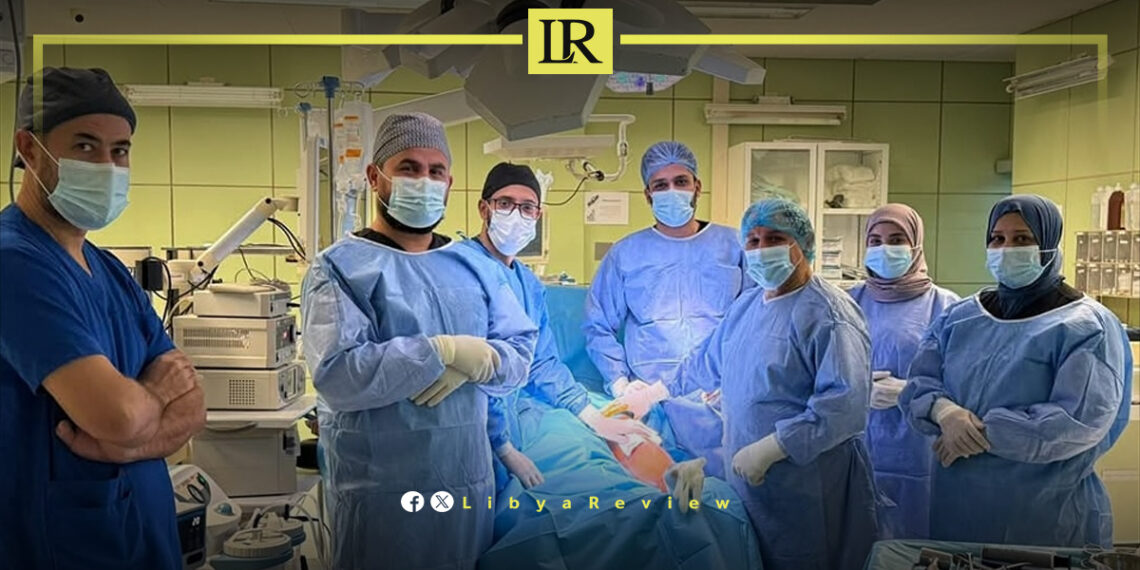The Orthopedics Department at Benghazi Medical Center has resumed performing advanced joint replacement and arthroscopy surgeries, marking a significant step forward in improving healthcare services and easing the financial burden on patients.
In a statement shared on Facebook, Dr. Mustafa Al-Fadhli, an orthopedic surgery consultant at the center, highlighted the significance of this development:
“The resumed surgeries include artificial joint replacements, meniscal cartilage repair, and ligament reconstruction—advanced procedures that previously required costly treatments in private clinics or abroad.”
Dr. Al-Fadhli emphasized that offering these surgeries free of charge represents a transformative improvement in healthcare access for Libyans, alleviating the suffering of patients and their families.
Dr. Al-Fadhli praised the efforts of the medical and auxiliary teams for their dedication. He also acknowledged the crucial support provided by the Medical Supply Organization, therapeutic services, and the center’s administration, led by Dr. Mohamed Madhi.
“Their combined efforts have played a pivotal role in enhancing medical services and ensuring the best care for citizens,” he added.
Libya has been in chaos since a NATO-backed uprising toppled longtime leader Muammar Gaddafi in 2011. The county has for years been split between rival administrations.
Libya’s economy, heavily reliant on oil, has suffered due to the ongoing conflict. The instability has led to fluctuations in oil production and prices, impacting the global oil market and Libya’s economy.
The conflict has led to a significant humanitarian crisis in Libya, with thousands of people killed, and many more displaced. Migrants and refugees using Libya as a transit point to Europe have also faced dire conditions.
The planned elections for December 2021 were delayed due to disagreements over election laws and the eligibility of certain candidates. This delay has raised concerns about the feasibility of a peaceful political transition.
Despite the ceasefire, security remains a significant concern with sporadic fighting and the presence of mercenaries and foreign fighters. The unification of the military and the removal of foreign forces are crucial challenges.


